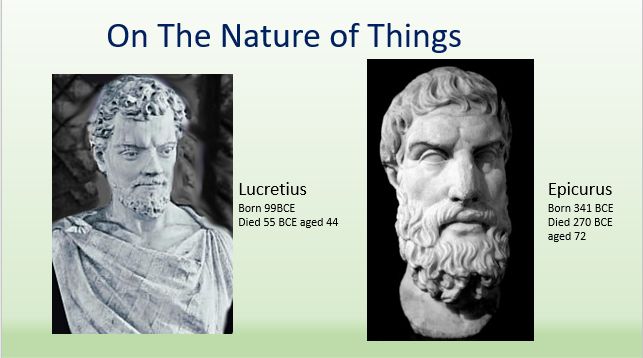

 |
Page
17
|
| Lucretius died young, supposedly poisoned by a love potion. He would
have been writing on some form of paper, papyrus with maybe fibres of cloth
mixed in and rolled into a scroll. His writing disappeared but a single
copy was re-discovered by Poggio Bracciolini. He was a papal scribe but
was a manuscript hunter, ranging as far as Germany and Switzerland searching
monasteries for forgotten rare book survivors. In 1417 in a monastery near
Lake Constance he found the only surviving copy of de rerum natura describing
the manuscript as a grubby, illegible, verse epic. This was writing that
was so anti-Christian it had been suppressed by the Church for centuries
because it threatened their very existence. Poggio could not have made a
more important find. Although he was writing around 50BCE (before common
Era) Lucretius was studying the writings of Epicurus from 300BCE who in
turn had been studying the writings of Democritus (460 BCE) and he had studied
Leucippus of around 550BCE. These were all Greek philosophers, who are known
as the atomists. They thought bodies were constructed from small
particles . Lucretius was writing his epic poems because he was convinced
by Epicurean ideas and wanted to bring these ideas to others.
|